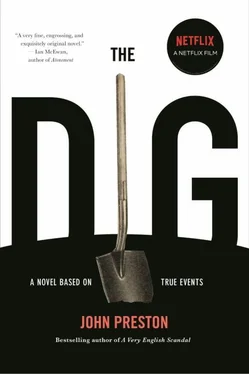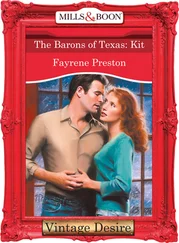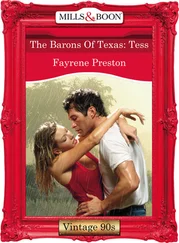“A half of best bitter, please.”
He looked at me again, as if to make sure he had heard correctly.
“And a half of best bitter,” he said.
When the beer arrived, Phillips drank half his in a single gulp. “Right then, to business.” The ship, he said, was more than eighty feet long so far, with the likelihood that it would be close to a hundred feet by the time both ends had been exposed. “As for dates, my estimate at this stage is anything from AD 600 to 800. I don’t think we will be able to pinpoint it more accurately until we see what is in the burial chamber.
“Everything’s been a bit of a mess so far. A local man called Brown was having a go under the auspices of Ipswich Museum. Self-taught, I’m afraid, and with everything that entails. He was on the verge of going right into the chamber, but fortunately I managed to step in before any real damage could be done. I’m hoping we will be joined by Frank Grimes from the Ordnance Survey. Possibly by Crawford too, if he can get away. Also, John Ward-Perkins is going to try to come from Rome. For the moment, however, it’s just going to be the three of us.
“Now, I should tell you that the landowner, a Mrs. Pretty, is a rather difficult lady, with some very fixed ideas of her own. There was even a bit of bother from the Ministry of Works, who had some lunatic scheme to erect a roof over the whole site. However, thanks to some nimble footwork on my part, I don’t anticipate any further difficulties.”
“What’s the situation with Ipswich, CW?” Stuart asked.
At this Phillips began to laugh. “They’re not very happy, I can tell you.”
“I bet they’re not,” said Stuart, who had also started laughing.
“I thought Reid Moir might have a seizure when I told him I was taking over. What made it even worse is that he was still smarting over the reviews of his new book.”
“What’s this one about?” Stuart asked.
“Flints!” exclaimed Phillips. “Paralyzingly dull, by all accounts. Do you know, I don’t think he’s forgiven me over that whole business with the aerial photographs.”
“You must tell Peggy what happened, CW.”
“Shall I? It was the most amusing thing.”
Phillips looked at me expectantly.
“Do, please,” I said.
“Very well. Reid Moir was awfully excited about what he claimed — insisted, would be nearer the mark — was evidence of a sunken village off the coast near Walberswick. He showed me the photographs and asked what I thought of his extraordinary find, plainly expecting me to salute him for his brilliance. I looked at them and said, my dear man, have you never seen oyster beds before?”
At this, they both began to laugh again, even more loudly than before. When the laughter had died away, Phillips held up his glass and called for more drinks.
“And how about events in the wider world?” Stuart asked. “How do you think they might affect us?”
Phillips looked at him blankly. “The wider world?”
“The Germans, CW…”
“Germans…” said Phillips in surprise. “I don’t recall a ship-burial ever being discovered in Germany.”
“No, no. I meant, the possibility — likelihood, even — of war.”
“Oh,” said Phillips. “That. Well, there’s no doubt that we will have to get our skates on. The BM has already started packing up its more fragile pieces and putting them in a tube tunnel beneath the Aldwych. I’d say we have three weeks at most to complete the excavation.”
It wasn’t until that moment that I realized how successfully I had used the excitement of our marriage to distract myself from the imminence of war. But the fact that I was having this realization at all probably meant the distraction had started to wear off.
Soon afterwards, Stuart excused himself. “Beer,” he explained with an apologetic wince. “It runs straight through me.”
Left alone with Charles Phillips, I struggled to think of something else to say. It was not easy, especially as he made no effort to instigate conversation. Instead, he sat polishing his spectacles with his handkerchief. This made me even more tongue-tied than usual. After a lengthy period of silence, I grew a little desperate.
“Are you also staying in the Bull, Mr. Phillips?” I asked.
“Unfortunately, yes,” he said. “I had been expecting to stay at Sutton Hoo House. That would have been far more convenient. Unfortunately, there appears to have been some sort of misunderstanding with Mrs. Pretty — the lady I mentioned earlier.”
Once again he lapsed into silence. Once again I strained for something to say.
“I wanted to tell you how flattered I was that you specifically asked for me to come here.”
Phillips glanced up at this, but did not reply.
“I know Stuart sent you my paper on Bosnian lake villages,” I went on. “It was awfully good of you to read it.”
He looked at me for longer than before, then said, “Very stimulating.”
“That means a great deal. I only hope I will be able to repay your faith in me.”
“I have no doubt you will.”
“It’s just that I haven’t done that much actual fieldwork.”
He shook his head impatiently. “Never mind about that.”
“I wouldn’t want you to think I was more experienced than I actually am.”
“You have all the key attributes,” he said. “That’s all that matters.”
“I do? I’m sure I’m being frightfully slow, Mr. Phillips, but I don’t follow you.”
“It’s perfectly simple. Look at me. Now, what do you see?”
“A man,” I said uncertainly.
“Yes, obviously a man. But a man of a certain size. I happen to have large bones; it runs in my family. Stuart has smaller bones than me, although even he must be around the twelve-stone mark. You, however, by virtue of your sex, are a good deal smaller and lighter than either of us. The ship is in a very delicate condition. You might say it scarcely exists at all, except for the rivets. Everything else is just hard sand. Put too much weight on it and the whole thing could disintegrate. It therefore seems sensible that I should supervise matters from outside the trench, while you will be able to get on with the actual digging. There,” he said, “is that clear enough?”
“Am I — am I to understand that you only asked me here because of my size, Mr. Phillips?”
Behind his spectacles, his eyes were quite small and bright. “Exactly,” he said.
The next morning we drove out to the dig. It was only a couple of miles away, on the other side of the estuary to Woodbridge. The driveway passed through a tunnel of beech trees. Sunlight flickered between the leaves, casting patterns on the gravel below. The house itself was a large white Edwardian building, set up on a bluff above the river, complete with squash court and garages.
Despite my having tried to envisage the site beforehand, I was still astonished by what I saw. There was a majesty about the sweep and scale of the ship that far exceeded any expectations. There was also something intensely moving about its tenacious hold on survival. About the way in which it had resisted obliteration by transforming itself from one substance into another. From wood into sand. It was like a giant apparition lying there before us. I looked at Stuart and saw that he was just as affected.
Three men were lined up on one side of the trench, apparently waiting for us. Phillips introduced them. “Mr. Spooner and Mr. Jacobs, and this is Mr. Brown, who did such sterling work on the earlier stages of the dig.”
Mr. Brown was a small, ferrety-faced man wearing an ancient tweed jacket and what might once have been a matching tweed cap. After we had all shaken hands, Stuart and I began by dividing the center of the ship into a grid. We then laid down a planning frame and marked off the squares with lengths of string. The men, meanwhile, were put to work shifting the spoil heaps — Phillips had decided these were too near the ship and should be moved further away. With only one wheelbarrow between them, this proved to be a lengthy business.
Читать дальше












